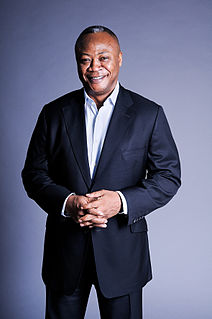A Quote by Steve Blank
Customer Development changes almost every aspect of startup behavior, performance, metrics, and, as often as not, success potential.
Related Quotes
The goal of a startup is to figure out the right thing to build-the thing customers want and will pay for-as quickly as possible. In other words, the Lean Startup is a new way of looking at the development of innovative new products that emphasizes fast iteration and customer insight, a huge vision, and great ambition, all at the same time.
Your typical business just measures the metrics that have to do with the profitability of the business one way or another. But you can have metrics that measure employee happiness and the morale. You can also do direct customer surveys; you can track it over time. You can do supplier satisfaction scores as well.
For a long time, I've ranted against naming your startup community 'Silicon Whatever.' Instead, I believe every startup community already has a name. The Boulder startup community is called Boulder. The L.A. startup community is called L.A. The Washington D.C. startup community is called Washington D.C.
All the businesses from the beginning of history have struggled with product development (assuming there is a market, doing the market testing and so on). But now they start with customer development. Get the customer who says, "Yes. I want that. I need it. I wanna use it. I'll pay for it." And then you go back and work with your engineers. It is changing the world!































